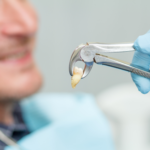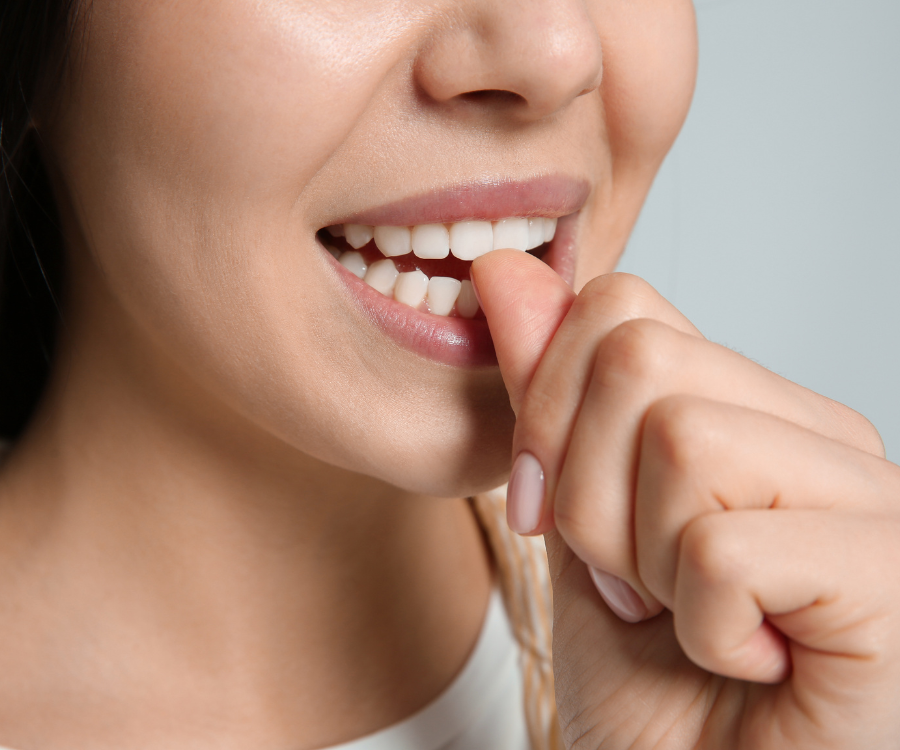Nail biting, or onychophagia, is a common habit that many people struggle with. While it might seem harmless, it can have significant negative consequences for your oral health. In this post, we’ll explore how nail biting can damage your teeth and offer some tips to help you break the habit.
How Nail Biting Harms Your Teeth
- Cracked and Chipped Teeth: Biting down on hard nails can cause your teeth to crack or chip, especially the front teeth. This can lead to pain, sensitivity, and even require dental work to repair the damage.
- Worn Enamel: The constant pressure of biting nails can wear down your tooth enamel, leaving your teeth more susceptible to cavities, sensitivity, and staining.
- Jaw Pain: Nail biting can also strain your jaw muscles, leading to pain and discomfort. This can contribute to temporomandibular joint (TMJ) disorder.
- Increased Risk of Infection: Your nails can harbor bacteria and germs, which can be transferred to your mouth and increase your risk of infections, such as gum disease.
Tips to Break the Habit of Nail Biting
- Identify Triggers: Understanding what triggers your nail biting can help you avoid situations that lead to the habit. Is it stress, boredom, or anxiety?
- Keep Your Nails Short: Shorter nails are less tempting to bite. Trim them regularly and file them smooth to reduce the urge.
- Use a Bitter-Tasting Nail Polish: Applying a bitter-tasting nail polish can make your nails less appealing to bite.
- Practice Stress-Relief Techniques: Explore relaxation techniques like deep breathing, meditation, or yoga to manage stress and anxiety.
- Seek Professional Help: If you’re struggling to break the habit on your own, consider seeking help from a therapist or counselor.
By understanding the negative effects of nail biting on your teeth and implementing these strategies, you can take steps to break the habit and improve your oral health.








